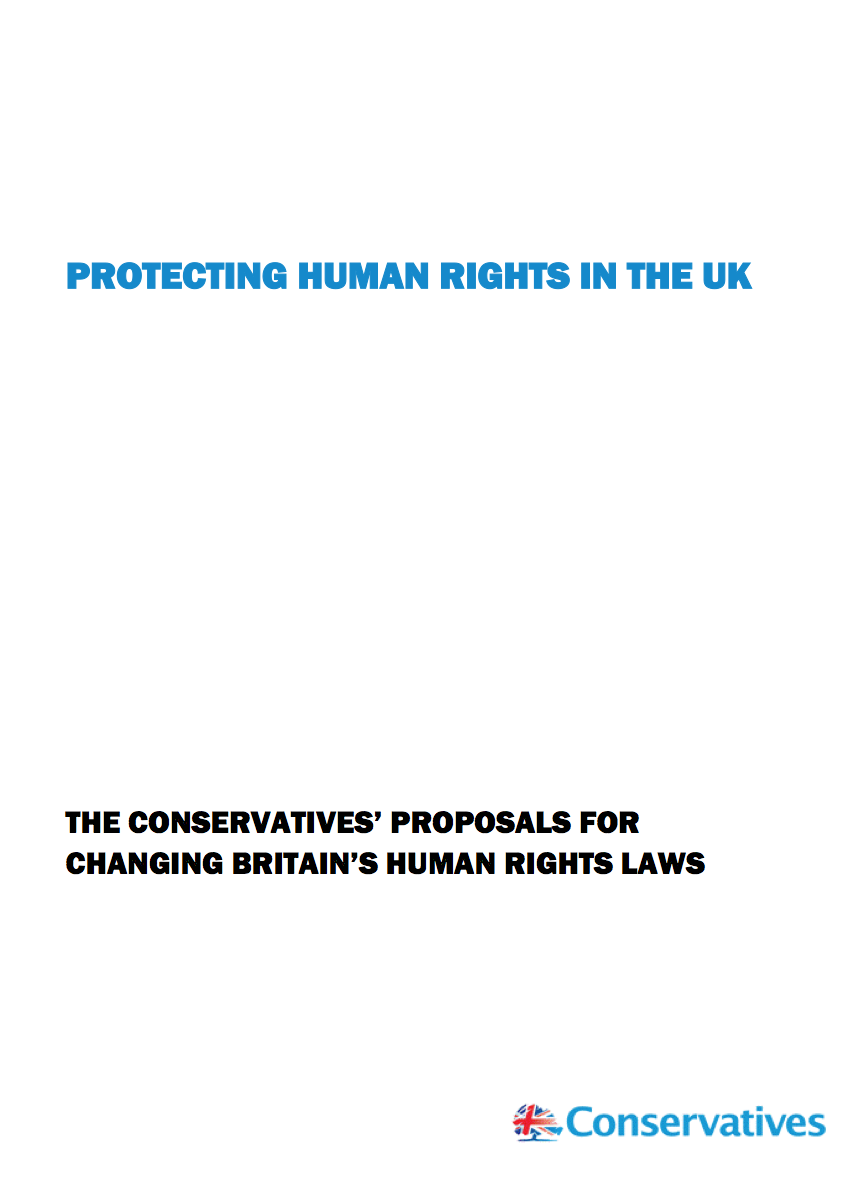David Davis: Cameron in opposition “really wanted to leave the Convention”
 David Cameron “really wanted to leave” the European Convention on Human Rights when he was leader of the opposition, David Davis MP said last night at a meeting organised by the conservative think-tank, Politeia. He was speaking briefly in response to a lecture given by Dinah Rose QC entitled “What’s the Point of the Human Rights Act?”.
David Cameron “really wanted to leave” the European Convention on Human Rights when he was leader of the opposition, David Davis MP said last night at a meeting organised by the conservative think-tank, Politeia. He was speaking briefly in response to a lecture given by Dinah Rose QC entitled “What’s the Point of the Human Rights Act?”.
He talked about Conservative plans for a “British Bill of Rights”, which he said he’d been at the origin of.
I started this argument
he claimed, in a meeting with David Cameron and Dominic Grieve, who according to Davis
got fired I think the telling the truth once too often.
At the time of the meeting David Cameron, he said
really wanted to leave the Convention.
Cameron had been Michael Howard’s special adviser, Davis reminded the audience, and suggested the 1996 Chahal judgment against the UK had left “scars”.
The meeting Davis referred to must have taken place in 2005 or 2006, when he was shadow Home Secretary. It was in June 2006 that David Cameron gave a major speech spelling out the Bill of Rights proposal.
There are problems with the Convention, Davis told the audience last night, since European judges are deciding cases
on the basis of a treaty that is now 62 years old
and are
doing so under a doctrine that treats the treaty as a “living instrument”.
But Davis’s inspiration in 2005-6 was about much more than cutting down the effect of rights, he said.
The Bill of Rights, I saw as a building block for British written constitution.
He expressed his admiration for the U.S Constitution, and the
explicit balance
it embodies between politicians and judges. It was impossible to change the European Convention, he said, but his aim was to
somehow codify it under our system.
Davis was critical, too, of the tendency of Labour ministers to speak out against the courts:
I watched time and again as David Blunkett among others criticised perfectly decent judgments.
Davis’s remarks are important, first because of the insight they give us into David Cameron’s long-standing hostility to the ECHR, and secondly because they show how David Davis’s strand of civil libertarian Conservative thought is prepared to entertain thoughts about a written constitution.
Reading David Cameron’s 2006 speech today, it’s striking how it refers to “entrenching” the Bill, giving it “a status similar to that of the German Basic Law” and making it “enduring” – all phrases which give a recognisable nod towards written constitutionalism.
That aspect of David Davis’s thinking was, though, met with frank disagreement on the night from the former Conservative MP Sir Ivan Lawrence QC:
It is nonsensical to suggest one of the solutions is a written constitution,
Sir Ivan said,
… a written constitution would take us a hundred years … It simply can’t be done.



 Liberty’s director is a great communicator, both in front of an audience and in the media; and partly because of that, this book is a little bit disappointing.
Liberty’s director is a great communicator, both in front of an audience and in the media; and partly because of that, this book is a little bit disappointing.
 The main constitutional business that ought to be on MPs’ minds at the moment is how to deliver
The main constitutional business that ought to be on MPs’ minds at the moment is how to deliver